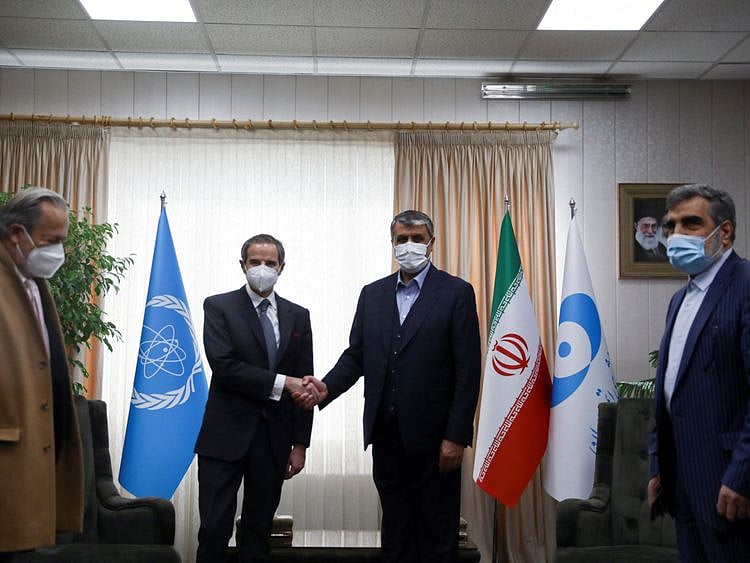Iran strikes pact with IAEA on probe, paving way for agreement
Tehran agrees to provide documents that will help resolve contentious probe by May 21

Tehran: Iran agreed to provide international atomic monitors with documents that will help resolve a contentious investigation, paving the way for a broader nuclear agreement with world powers and a potential return of Iranian oil to global markets by the third quarter.
The agreement was announced on Saturday in Tehran between International Atomic Energy Agency (IAEA) Director General Rafael Mariano Grossi and Iran’s nuclear chief Mohammad Eslami. Potentially, it represents a key step toward restoring a 2015 agreement that curbed the Islamic Republic’s nuclear programme in exchange for sanctions relief.
“We reviewed the outstanding issues and reached the conclusion to exchange necessary documents between the Atomic Energy Organization and the IAEA by May 21 at the latest,” Eslami said. “These issues should be resolved by the day of return to the nuclear deal.”
If successfully implemented, the pact with the IAEA removes one of the last remaining hurdles for Iran to resume JCPOA compliance and increase oil exports. The Trump administration abandoned the deal four years ago and unilaterally imposed U.S. sanctions, prompting Iran to retaliate by ramping up its nuclear activities beyond the levels agreed in the JCPOA. Negotiators have been huddled in Vienna for more than 10 months trying to salvage the accord.
The “practical and pragmatic approach” to assessing the documents should help IAEA investigators answer questions about the origin of uranium particles detected at several undeclared sites, according to Grossi. It would be “difficult to imagine” a return to the so-called JCPOA agreement without clarifying the probe, he said.
While the IAEA isn’t a formal party to the JCPOA, its inspectors guarantee that the agreement is being followed by verifying the amount of nuclear material in Iran. They discovered trace amounts of man-made uranium at several locations during a probe that was triggered by a cache of documents smuggled out of Iran by Israeli spies. Israel’s Defense Minister Benny Gantz said last month at the Munich Security Conference that it was essential for the IAEA to continue investigating Iran, even in the event of a revived deal.
The May 21 deadline to resolve the investigation could fit into the staged timeline diplomats are preparing to reboot the JCPOA. That will begin with confidence-building measures that allow a U.S. return to the deal, followed by more substantive commitments that reduce Iran’s nuclear stocks in exchange for sanctions relief. An agreement to resume compliance could be concluded within days, allowing the nation access to international markets after a couple months.
The IAEA’s 35-member board of governors convenes its quarterly meeting to discuss the Iran probe on March 7.
Sign up for the Daily Briefing
Get the latest news and updates straight to your inbox
Network Links
GN StoreDownload our app
© Al Nisr Publishing LLC 2026. All rights reserved.